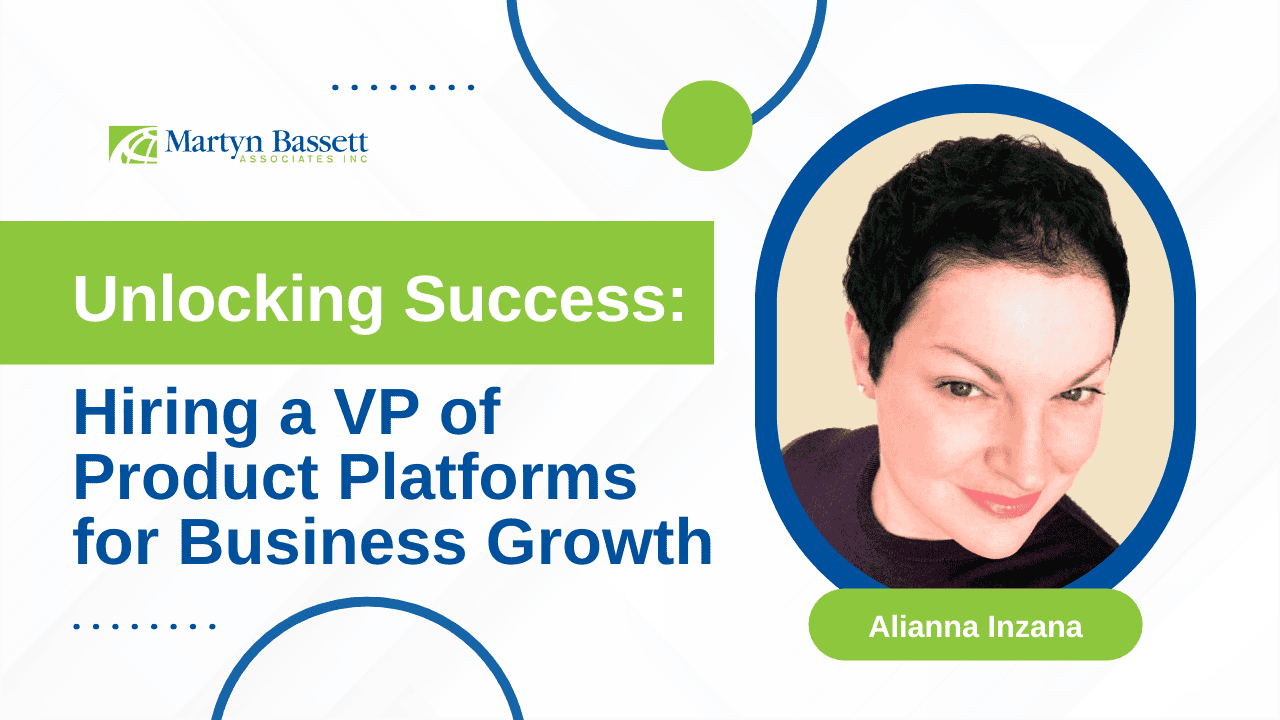Finding the right leadership is crucial for scaling and sustaining a business. We recently sat down with Alianna Inzana, an esteemed Product Management Leader to get her insights on the pivotal role of a VP of Product Platforms.
With her expertise in platforms, APIs, services, trust, safety, and infrastructure, Alianna provides a comprehensive guide to understanding why this role is essential, how it differs from a generalist VP of Product, as well as the significant value it brings to both a product and a business.
Let’s dive in:
Why do you need a Vice President of Product Platforms? How does that role differ from more of a generalist VP of Product?
As the CEO or CPO of a successful product company, you have built your core product on a platform optimized for speed on delivery. That platform scaled from your beta launches through to finding product-market-fit, and now your product team is considering expanding beyond the core product. But building a product business at scale presents unique challenges.
Platforms optimized for product iteration through ‘fast failing’ will often fail fast when operating at the actual scale of a business. Infrastructure choices start to impact revenue. For example, a B2B site that loads in 1 second has a conversion rate three times as high as one that loads in 5 seconds (according to a study by Portent). Expansion into new customers and markets comes at the cost of feature work.
At this stage, a common refrain from product teams is, ‘The roadmap is delayed for tech debt.’ Fast forward and the presence of additional products on the platform sets the stage for complex questions of ownership within the product leadership team – a stalemate that only the CEO or CPO can break. Your investors expect you to drive the long-term vision so you need a VP of Product Platforms to translate that vision into products that will scale and expand the business.
What value does a VP of Product Platforms bring to the product and the business?
Product platforms – like automotive platforms – are the structural foundation of a product. They can be divided into two areas:
- Shared components or capabilities that are essentially what your product does.
- Interfaces that provide your customers with a means to access those capabilities.
Platforms are the building blocks for an organization to efficiently deliver customer-facing value through one or many products. An organization that reuses and standardizes these building blocks of product operates with greater efficiency and profitability, especially at scale.
Product Platform leaders are brought in for their expertise in scaling the business. They are ‘technologically bilingual’ – speaking the languages of both engineering and business, and most importantly effectively translating between the two.
They see how the core capabilities that make your product unique can diversify revenue channels and enhance your offerings ’stickiness’ through integration into the broader product ecosystem.
They understand where strategic platform investments – in security or infrastructure optimization – can make your business sustainable. The VP of Product Platforms is the architect of the stable foundation and scalable core capabilities that all product teams use to build your company’s future.
How might a CEO evaluate one candidate over another when looking to hire a VP of Product Platforms?
A VP of Product Platforms is essentially a Product Manager so candidates for the position should be assessed according to your standard PM rubric. However, there are three key areas where VP of Product Platforms candidates should shine: prioritization, tech literacy, and emotional intelligence.
- Prioritization: Everybody in product needs to prioritize, but platform leaders need the wisdom of King Solomon to do it effectively. The VP of Product Platforms does not prioritize the customer alone; rather, they arbitrate between features and services requested by customers, regulators, and their peers within the product organization. To get a better understanding of this skillset, ask candidates to share examples of how they’ve tackled challenging trade-offs and how they typically frame those discussions with their peers and/or their teams.
- Tech Literacy: Product Platform leaders serve as a translation layer between the strategic priorities of the business and the technical and architectural implementation of those priorities. Can the candidate make a case for implementing a new technology or addressing specific technical debt in the context of how it benefits the business? Are they conversant in implementing and optimizing broad business functions that apply to any SaaS business? (e.g., billing, security, notifications, search, information architecture, design systems, etc.)
- Emotional Intelligence: Managing a product platform upon which one or many products and revenue lines depend is always an exercise in effective change management with a substantial side of influencing without authority. Potential candidates should be able to articulate their approach to change management with examples and outcomes.
Hiring a VP of Product Platforms is a strategic investment in your company’s future. The ideal candidate blends ‘traditional’ product management expertise with technical acumen, and a near-infinite curiosity about customer problems and the tech that underpins your company’s solutions.
We hope this blog sheds further light on the strategic importance of VP of Product Platforms as the backbone of a product’s scalability and efficiency. Alianna’s insights underscore the critical nature of this position, emphasizing the unique blend of prioritization, technical literacy, and emotional intelligence required to excel.
By hiring a VP of Product Platforms, companies can ensure their products meet current demands and are poised for future expansion and innovation. Investing in the right candidate is a strategic decision that can significantly impact the company’s ability to deliver consistent value and maintain a competitive edge in the market.
